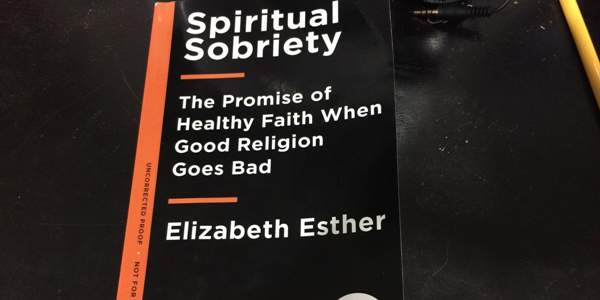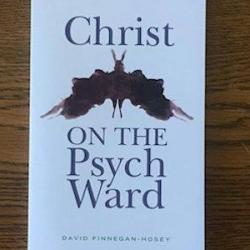Elizabeth Esther grew up in a fundamentalist Christian cult. Her upbringing left her not only with deep spiritual wounds but with an unhealthy addiction to the highs of religious experience. In her new book Spiritual Sobriety, which comes out April 19th, she talks through strategies for recovering from spiritual addiction, making us of the wisdom from 12 step programs. It’s a new way of thinking about recovery from fundamentalism that I haven’t encountered before, and I really think she’s onto something.
For a religious addict, Christianity is supposed to be dramatic and impulsive. It involves epic battles with Satan, emotionally exhausting prayer marathons, and fierce doctrinal debates. Esther describes the way that certain types of religious services become like a drug for many Christians:
Maybe like me you’ve experienced the euphoria–and desolation–of religious services aimed at drawing in the faithful via lights, sound, and deep feeling. Many religious events are intentionally designed to deliver intense emotional experiences. There’s the ubiquitous mood lighting so that you can only see what’s meant to be seen… Loud music ensures you hear only what is meant to be heard… Several high-energy warm-up acts make you feel only what you’re supposed to feel… By the time the featured attraction steps on stage… you’re so amped up you’ll hand over your body, soul, and wallet. It doesn’t even occur to you that this might be destructive, because feeling elated is the desired outcome. [21]
Esther puts forward a vision for religious sobriety that describes a calm, intentional, patient way of practicing faith instead of the bipolar-ish spirituality of hyped up Christianity. The following are some of her touchstones for sober religion:
We celebrate God’s intentional love for us and learn to trust again…
We replace religious superstition… with common sense and practice self-care….
We take responsibility for our behaviors and no longer blame other people, supernatural forces or institutions for our decisions and actions…
We do not presume to speak for God, preferring rather to find common ground, respect the experiences of others, and build unity…
Our behavior is moderate and intentional, free from compulsion, obsession, and extremism.
We learn to identify and express our true feelings…
We prioritize our commitments to children and family above our commitments to a religious leader or organization…
We offer the gift of our presence in the present, allowing God to take care of our afterlife.
As someone on my own journey of recovery from addiction and mental illness, the middle principle is the one that most resonates with me: “Our behavior is moderate and intentional, free from compulsion, obsession, and extremism.” To me, those two words, moderate and intentional, are the hallmark of spiritual maturity. I am neither, but with God’s help, I hope to grow into them.
One could argue that Esther is just coming up with a fancy way to talk about sanctification. However, I think the language of addiction is very helpful. Too many Christians have gotten stuck in spiritual infancy because being flamboyant and dramatic and argumentative has a lot more emotional payoff than being the boring Christian of moderation and intentionality. I don’t come from a spiritually abusive or addictive background. But I will definitely hang onto Esther’s book and make use of her vision as I pursue sobriety in every aspect of my life. You can order it on Amazon today!











